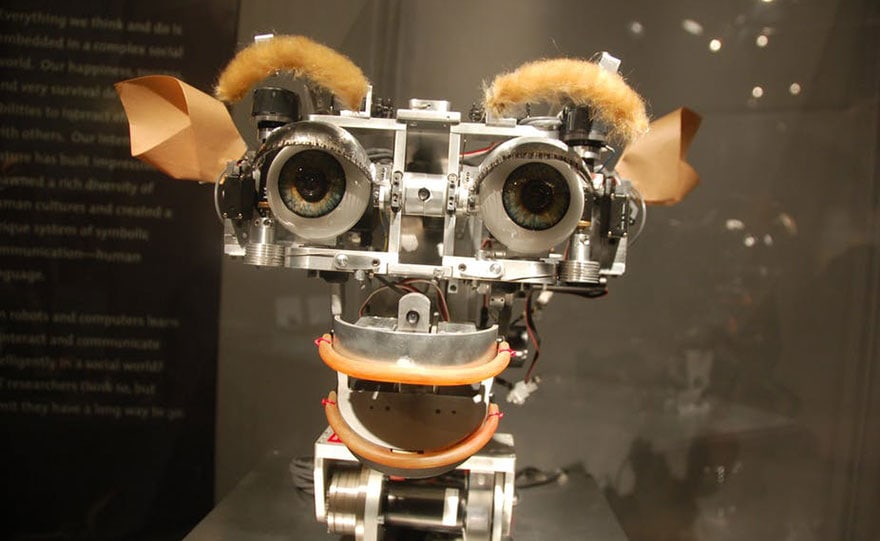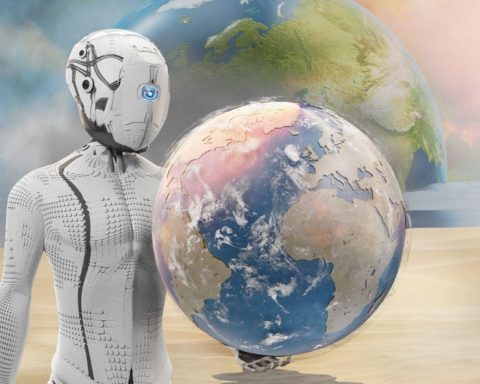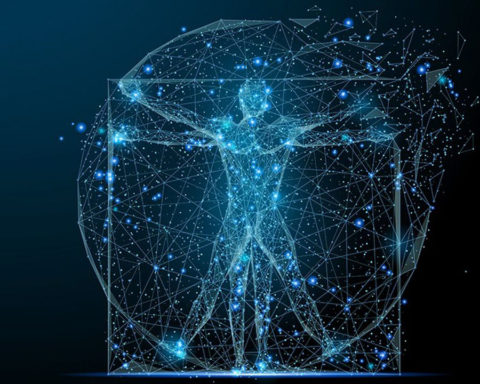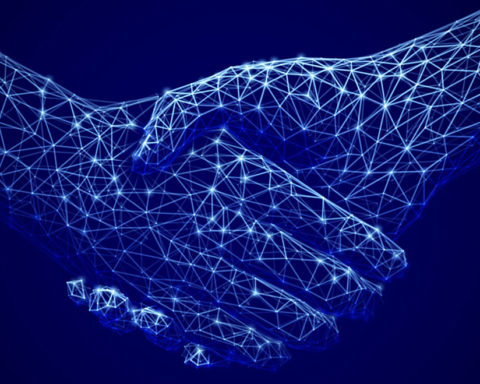Artificial intelligence (AI) is on the rise. So much so that its successes, and its conquests, could make it a great threat to humanity. Should man, equipped with his modest natural intelligence, therefore be afraid of (unfair?) competition from AI? Looking into this question exposes us to a few surprises.
Artificial intelligence
In recent years, AI has carried out the following activities great advances. Image recognition, medical diagnostic aids, machine translation, lip reading, voice assistants, natural language comprehension, autonomous vehicles: there are many areas where progress is impressive.
Thus AI is undeniably progressing in the mastery of intellectual operations, and in the rationalization of efficient procedures. It can carry out, much better than we can, a large number of tasks. Artificial neural networks are able to recognize (forms, handwritten characters); to identify; to classify. In what way, then, are these advances a threat to mankind?
We can imagine the development of technologies embodied in robots capable of thinking like us, and ultimately better than us. That could survive us, and replace us. We fear the qualitative leap that would be the emergence of an AI capable of improving itself, until you get past the man. It is feared that robots with an autonomy that goes beyond the technical field and capable of making ethical decisions, even though they lack ethical awareness, could have harmful effects.
But is intelligence reduced to the ability to produce intellectual operations, and to the mastery of efficient procedures? Artificial intelligence is technological. Is "it works" (to operate certain intellectual gestures and to carry out certain actions efficiently) the last word in intelligence? In the expression "artificial intelligence", is the term "intelligence" where it belongs? Because, at the end of the day, what is intelligence?
Natural intelligence

René Zazzo ("What's the state of child psychology? »(1983) proposes to strike the term "naked" intelligence from the vocabulary, because, "meaning too much, it means nothing". What is called "intelligence" is plural: one would have to consider a dozen different intelligences. Moreover, intelligence lies in the proper use of one's cognitive abilities. They must be used wisely ("at the right time and appropriately", p. 54). Descartes saw it very well: "it is not enough to have a good mind, but the main thing is to apply it well" (Discourse on the Method, Part I).
This takes us away from a conception that would reify intelligence, transforming it into a "thing" that everyone would possess more or less. Indeed, intelligence can be conceived of in at least three ways (Hajji, 1992): as a biological datum (hereditary conception); as the result of a concrete and progressive construction (constructivist conception); or as a requirement (the requirement to build oneself intelligently: "perfectionist" conception, based on the Rousseauist idea of perfectibility).
If the second and third conceptions are the most relevant, then, on the one hand, intelligence, as a capacity for distancing and critical consciousness, is the result of an everyday conquest. It is in this sense that Alain said that "everyone is just as intelligent as they want". And, on the other hand, it constitutes a paradoxical "reality". As Brassens aptly sings ("Ceux qui ne pensent pas comme nous"): "Entre nous soit dit, bonnes gens,/Pour reconnaître/Que l'on n'est pas intelligent,/Il faudrait l'être. ». Not understanding this could be an indication of "bullshit". But then: what is bullshit?
Natural bullshit
We would never have allowed ourselves to use this term if we had not been able to place ourselves under the high authority of Professor René Zazzo. This one, in order even to better understand the notion of intelligenceIn fact, it devotes a chapter to the question: "What is bullshit (ma'am)? "For, in his view, one can be both stupid and intelligent at the same time, and "the opposite of stupidity is not logic" (p. 47).
This opposite would therefore be a form of intelligence different from logical intelligence (that of AI), a form whose bullshit would mean insufficiency, or absence. Intelligence that could perhaps be defined as the consciousness of one's insufficiencies and limits. Hence the key to the paradox: in order to recognize that one is not intelligent (that one does not sufficiently bring into play this critical consciousness), one must be intelligent, i.e. already be capable of critical consciousness. This "other dimension" of intelligence, the highest dimension, would be a kind of antidote for bullshit.
Precisely, the characteristic of an asshole is not to suspect that he is. "In order to know it, he would have to go off-center, to see himself with the eyes of others... Which supposes that he would not be. The tragedy is that bullshit is unfortunately widespread. In research on it, Zazzo writes, "there is no shortage of volunteers to make up the population of experience. Examples abound of bullshit in its raw state, the kind that makes people dive into a pool without water, run on the roofs of trains that go under tunnels, or get fifteen of them together to beat up a defenseless high school student for no reason.
Thus, the tension between insufficient mastery and technical efficiency, for which AI would be the superior pole, is not superimposed with another tension, which opposes bullshit and critical intelligence. Since they do not play on the same field, human intelligence (as a critic) would not have to fear artificial intelligence. But are we nevertheless sure that we are safe from the emergence of artificial bullshit?
Artificial bullshit
A priori, bullshit is the hallmark of man. As Cédric Villani observed about the failure of APBThe algorithm in itself is not responsible for the huge "mess" that has occurred in the assignment of high school students to higher education institutions, as the problems encountered are a political responsibility. "The software itself is not to blame. Bullshit is human, not technical.
Could we, however, identify the neural circuits of bullshit, develop programs to be ever more stupid, and build robots that are experts in bullshit? But what would be the point: we are already so good at natural bullshit!
Artificial intelligence is a sharp form of logical intelligence, but not yet critical intelligence. It is therefore logical that we have, for the moment (but, in our opinion, forever, since bullshit is only proper to man, and does not manifest itself in animals or plants), no proof of artificial bullshit.
To get to that point, the "machines" (robots and programs) would have to have access to critical intelligence, of which natural human bullshit is like a hollow witness. Going further and further in the field of logical intelligence does not put anyone at risk of bullshit, except for those who would make uncritical use of this form of intelligence, and who would therefore already be stupid "by nature". In short, and paradoxically, bullshit is our fatal weapon against possible excesses of AI.
Let's finally answer our original question
Should artificial intelligence be feared today? We can certainly fear a strong loss of jobs, on tasks that can be automated. But the problem is then that of the fair distribution of the wealth produced, and the place to be given to work in human life. This is a problem that man, if he is not too stupid, should be able to solve intelligently.
Decidedly, we can conclude that artificial intelligence is much less to be feared than natural bullshit, which unfortunately (among others!) triumphs among too many heads of state. Out of pure charity, we will not name any names. But, alas, they will not recognize each other (since they are idiots). In this period of vows, we will content ourselves with hoping that they will end up being touched by the grace of critical intelligence, the one that makes one doubt oneself, and question oneself on the value of one's actions, and the consequences of one's decisions.
Of saving kindness
However, we can make one final observation. Alongside the tensions between operational inadequacy and technological mastery, and between bullshit and critical intelligence, we must distinguish a third tension, also non-superimposable, which opposes kindness to nastiness. For, as Brassens once again saw it well, "when assholes are brave", there is little harm in it. Difficulties arise from the mixing of genres, when "assholes" are "cowhide".
Let us therefore hope that a burst of goodness will accompany the development of the highest form of natural intelligence. And let us conclude: peace on earth to all human beings of good will, as long as they are not too stupid, rather brave, and show a little bit of critical intelligence....
Charles HadjiHonorary Professor (Education Sciences), Grenoble Alpes University
Header Image: MIT Museum: Kismet the AI robot smiles at you. Chris Devers/VisualHunt
The original text of this article was published on The Conversationeditorial partner of UP' Magazine












